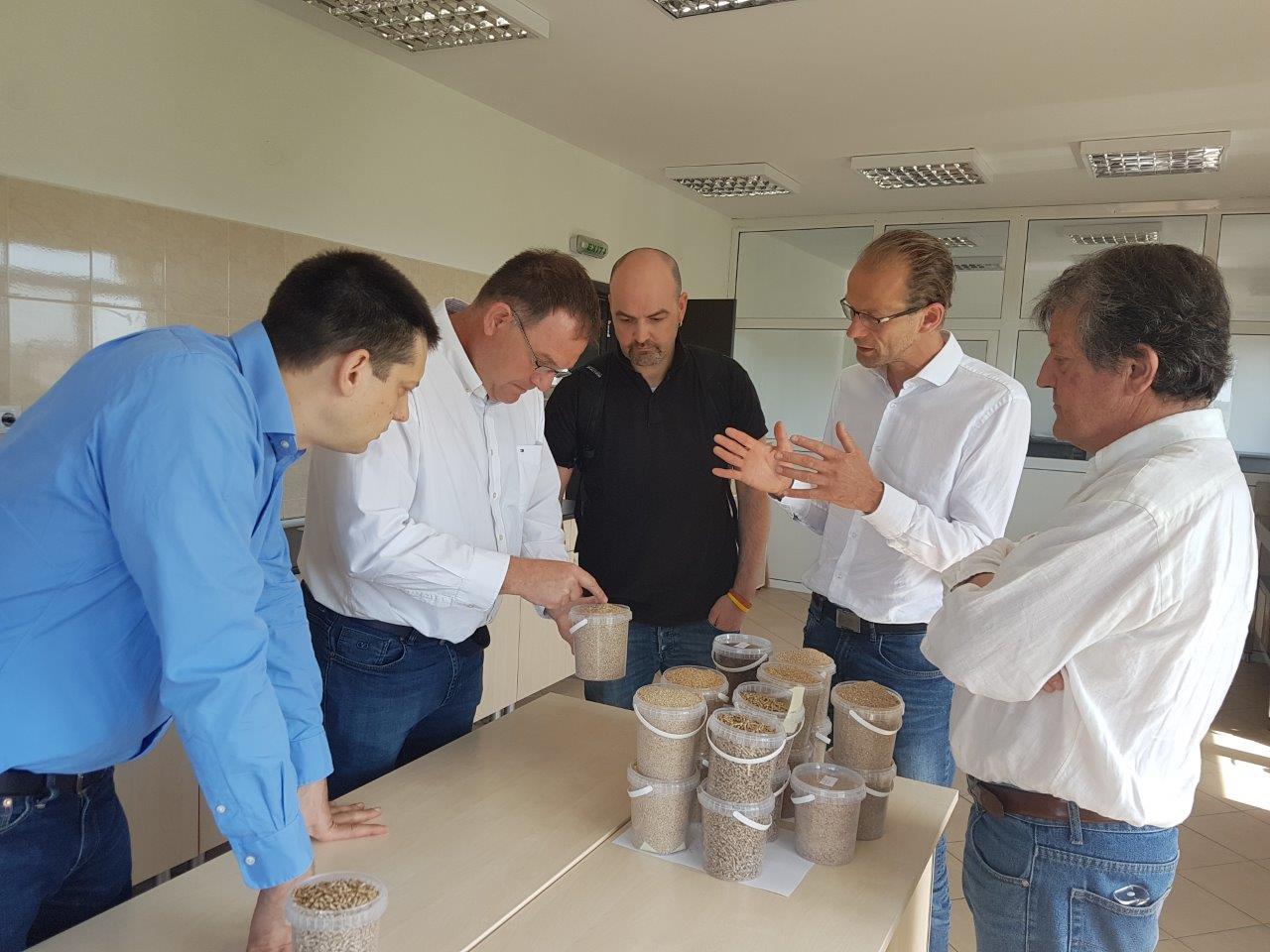U.S. Soy Feedmill Customers in Romania and Bulgaria Get Technical Support from USSEC
- Category:
- Animal Utilization
- General News

In an effort to support U.S. Soy customers, USSEC recently organized one-on-one technical programs at key, fast-growing livestock and feed milling companies in Romania and Bulgaria.
USSEC consultants Dr. Gonzalo Mateos, Dr. Birger Svihus, Dr. Ozren Zimonja, and Dr. Iani Chihaia teamed up for this activity with the goal to provide assistance and knowledge to customers on soy differentiation between origins and suppliers and particle size, as key factors in improving the profitability of integrations from growing industries from these Southeast European countries.


The USSEC consultants emphasized the role of soybean meal as a high quality source of protein / amino acids, and according to the origin of soybean meal, the quality varies. They also made clear that dehulled soybean meal has an excellent nutrient profile and higher energy values and contains more digestible nutrients compared to non-dehulled soybean meals, suggesting that is desirable to use U.S. dehulled soybean meal for improving egg weight as well as egg quality to get higher egg grade from consumers. The use of U.S. dehulled soybean meal with excellent protein quality and amino acid digestibility could be useful for the economic production of layers. Another topic of interest was soybean meal and oil in laying hens’ nutrition and feeding. Feed formulation and feed manufacturing knowledge shared by the USSEC consultants proved to be valuable answers for the nutritionists and feed mill managers from the companies visited.


As for the feedmill part of the visits, the USSEC experts commented on the importance of proper storage of different origins and segregation between different ingredients, emphasizing the importance of segregation soybean meals of different origins. Additionally, they presented how to properly manage the handling of stored soybean meal and mistakes to avoid. Another important discussion focused on ingredient handling and storage rules and their impact on economics and efficiency.



The management and personnel of the visited companies expressed gratitude for the chance to improve their knowledge on U.S. Soy quality attributes. They understood the energy and nutritive values and how to incorporate them into feeds in order to improve poultry and feed production performances. This technical activity is expected to encourage and increase U.S. Soy imports from this year crop in Romania and Bulgaria.